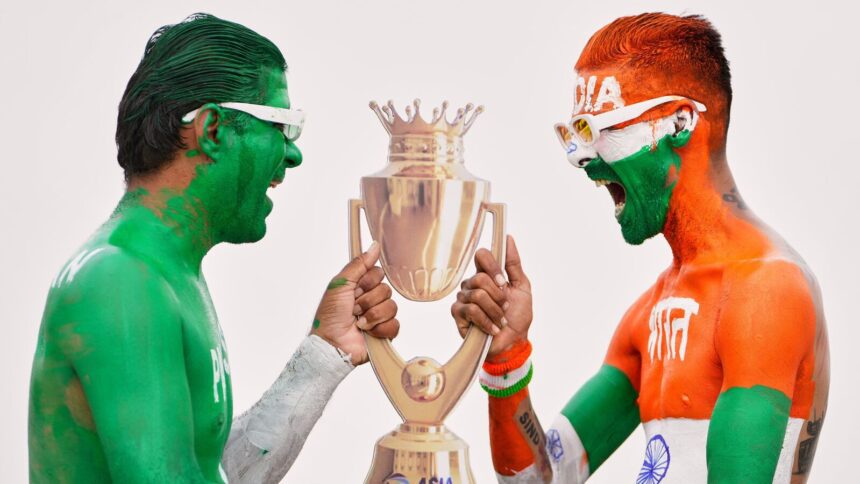Asia Cup 2025: India vs. Pakistan Match Draws Criticism
India is poised to face Pakistan in a highly anticipated clash at the Asia Cup 2025, a match that has sparked significant criticism from opposition parties. They have labeled it a “treasonous” act, voicing their discontent due to its timing, just months after the Pahalgam terror attack that resulted in multiple fatalities.
AIMIM Chief Asaduddin Owaisi condemned the Bharatiya Janata Party (BJP) for allowing the match to occur in Dubai, questioning the rationale behind engaging in sporting events with a nation linked to violence. He urged the government to clarify the financial advantages of the match compared to the human costs, emphasizing the deaths of 26 citizens during the Pahalgam attack.
“Do you not possess the authority to decline a match against Pakistan, a country responsible for the deaths of our citizens in Pahalgam?” Owaisi asked during a media interaction, addressing state officials from Assam and Uttar Pradesh.
The attack on April 22 claimed the lives of 26 individuals, predominantly tourists, leading to India’s Operation Sindoor—a military initiative targeting terrorist camps in Pakistan and Pakistan-occupied Kashmir.
Uddhav Thackeray, Chief of Shiv Sena (UBT), characterized the match as an “insult to national sentiments,” advocating for widespread protests under the banner of ‘Sindoor’. He stressed that without a cessation of terrorism, diplomatic relations with Pakistan should remain suspended.
Thackeray raised concerns regarding the government’s stance on the military operations, questioning whether Operation Sindoor has been abandoned while appealing to patriotism and discouraging the public from watching the match due to the emotional toll of the attack.
“This cricket match belittles our soldiers’ sacrifices. How can we compete in sports with Pakistan amidst ongoing violence?” Thackeray stated.
Sanjay Raut, a Shiv Sena (UBT) MP, also spoke out, announcing a protest known as the ‘Sindoor Raksha Abhiyaan’. He criticized the idea of mixing sports and organizational ties with Pakistan, raising the question of how “blood and cricket” can coexist when “blood and water” are deemed incompatible.
Member of the Legislative Assembly Abu Azmi from the Samajwadi Party criticized the government’s “double standards” regarding relations with Pakistan, expressing skepticism about the motivations behind the match.
Aishanya, a widow of a victim from the Pahalgam attack, joined the calls for a boycott, describing the decision as “deeply insensitive” and accusing the Board of Control for Cricket in India (BCCI) of disregarding the families’ sentiments.
Emphasizing the emotional impact of the match, Sawan Parmar, who lost family members in the attack, expressed his distress over the event being organized, stating, “If you wish to play this match, bring back my brother who was killed.”
Supriya Sule, an MP from the NCP, echoed others’ sentiments, questioning the government’s stance. She remarked, “If blood and water cannot flow together, how can bat and ball coexist?” expressing her shock at the government’s decisions surrounding the match.
BJP MP and former sports minister Anurag Thakur responded to the controversy, commenting that participation in matches against Pakistan is dictated by tournament regulations rather than a shift in diplomatic policy. “In multinational tournaments governed by ACC or ICC, it is necessary for nations to participate; otherwise, they risk forfeiting,” Thakur noted.










